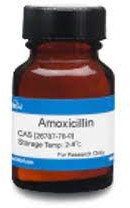Amoxicillin trihydrate 300 mg oral (PO) has been prescribed for a client with an oral infection. The medication is available in a liquid suspension that is available as 250 mg/5 mL. How many milliliters should the nurse administer?
Record your answer using a whole number.
6
4
1.2
5
The Correct Answer is A
Choice A rationale: This is the correct answer. It corresponds to 300 mg of the drug ((300x 5)/250).
Choice B rationale: This is incorrect because it is too low. It is the amount of milliliters that corresponds to 200 mg of amoxicillin trihydrate, which is less than the prescribed dose of 300 mg.
Choice C rationale: This is incorrect because it is too low. It is the amount of milliliters that corresponds to 60 mg of amoxicillin trihydrate, which is not enough to treat an oral infection.
Choice D rationale: This is incorrect because it is too low. It is the amount of milliliters that corresponds to 250 mg of amoxicillin trihydrate, which is less than the prescribed dose of 300 mg.
 |
Nursing Test Bank
Naxlex Comprehensive Predictor Exams
Related Questions
Correct Answer is B
Explanation
Choice A rationale: Intubation and mechanical ventilation may be needed if the respiratory muscles are affected by GBS, but this is not a routine intervention at this stage.
Choice B rationale: One of the main treatments of GBS is IV immunoglobulin therapy (IVIG), which involves infusing antibodies from donated blood plasma to block the harmful immune response that damages the nerves. Sandoglobulin is one of the brand names of IVIG used for GBS. IVIG can help shorten the duration and severity of the disease, and improve the recovery rate.
Choice C rationale: Methylprednisolone is a corticosteroid that can reduce inflammation, but it is not recommended for GBS, as it may worsen the condition or increase the risk of infection.
Choice D rationale: NG feeding tube may be required if the patient has difficulty swallowing, but this is also not a standard intervention at this time.
Correct Answer is D
Explanation
Choice A rationale: Phenelzine is an antidepressant that typically does not affect blood glucose levels significantly.
Choice B rationale: Allopurinol, used for gout, is not known to significantly impact blood glucose levels.
Choice C rationale: Metoprolol, a beta-blocker, might mask some symptoms of hypoglycemia but is not typically associated with causing hyperglycemia.
Choice D rationale: Methylprednisolone, a corticosteroid, can elevate blood glucose levels and might contribute to hyperglycemia in a person with diabetes mellitus.
Whether you are a student looking to ace your exams or a practicing nurse seeking to enhance your expertise , our nursing education contents will empower you with the confidence and competence to make a difference in the lives of patients and become a respected leader in the healthcare field.
Visit Naxlex, invest in your future and unlock endless possibilities with our unparalleled nursing education contents today
Report Wrong Answer on the Current Question
Do you disagree with the answer? If yes, what is your expected answer? Explain.
Kindly be descriptive with the issue you are facing.
